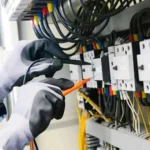Dealing with anxiety can feel isolating, but having a strong support system can make a world of difference. Friends, family, coworkers, or even support groups can provide comfort, perspective, and encouragement when anxiety feels overwhelming. A trusted network reminds you that you’re not facing this alone. In this blog, we’ll explore how emotional support, active listening, and shared understanding can ease the weight of anxiety and help you build resilience in your daily life.
Keep the curiosity alive—explore Related Posts filled with smart, fresh insights!
Core Components of an Effective Support System for Anxiety
Science has validated how profoundly social bonds impact anxiety. The next logical question emerges: who belongs in your support circle, and what specific functions do they serve?
Emotional Support Providers
Family typically represents your foundational support layer, though this fluctuates dramatically based on individual family histories. Friends you’ve chosen bring distinctive value precisely because there’s no familial obligation driving their presence. They see things your relatives might overlook.
Partners in romantic relationships contribute meaningfully but require thoughtful boundaries to avoid relationship deterioration. The most effective emotional supporters share recognizable traits: they hear you out without rushing to solutions, they affirm your feelings even without complete comprehension, and they show up reliably.
Professional Mental Health Support
Here’s an encouraging development: 2024 data indicate 14% of U.S. adults (roughly 1 in 7) participated in counseling or therapy within the past year. Therapists specializing in CBT or DBT deliver structured methodologies that work alongside the emotional support from your personal circle.
Psychiatrists become indispensable when pharmaceutical intervention enters the picture. Support group facilitators engineer environments where collective experiences dissolve feelings of isolation. Life coaches assist with ambition-setting and momentum, though they can’t replace licensed clinicians when you’re dealing with clinical-level conditions.
The Science Behind Support Systems and Anxiety Relief
Knowing you need people around you is the easy part. But what’s genuinely happening inside your nervous system when you lean on someone during moments of intense anxiety?
Neurological Impact of Social Connection on Anxiety
Something remarkable occurs when you voice your fears to someone who genuinely cares. Your brain floods with oxytocin, directly suppressing cortisol production. This isn’t some vague wellness theory—we’re discussing measurable shifts in your biochemistry. Brain scans demonstrate that your amygdala (essentially your brain’s alarm system) demonstrably quiets when you’re receiving meaningful social connection.
Mirror neurons activate during supportive interactions, essentially allowing you to borrow emotional stability from people around you. Your nervous system syncs with theirs. Medical professionals routinely utilize the ICD-10 Code for Anxiety to precisely diagnose different anxiety disorders, enabling treatment strategies that merge clinical interventions with robust support frameworks.
Psychological Frameworks Supporting Connection
Attachment theory illuminates why certain individuals instinctively reach out during distress while others retreat inward. But here’s encouraging news: those ingrained patterns aren’t permanent. Social baseline theory proposes something fundamental—humans evolved expecting social support as the norm, not the exception. Our brains literally anticipate not facing threats in isolation.
The biopsychosocial model acknowledges a crucial reality about mental health: it’s never exclusively about neurotransmitters. Your relationships, community ties, and broader social landscape hold equal weight in managing anxiety with support. Contemporary treatment increasingly weaves together medication, therapy, and intentional support network cultivation.
Proven Anxiety Coping Strategies Through Your Support Network
You’ve identified the right people. Now comes implementation—translating those connections into concrete, research-backed strategies that deliver measurable anxiety reduction.
Communication Techniques for Expressing Anxiety Needs
Mastering “I” statements transforms how you convey feelings without triggering defensiveness. “I feel swamped when…” lands dramatically better than “You constantly stress me out by…” Establishing transparent expectations upfront prevents resentment from festering.
Developing a crisis communication blueprint before you’re actively panicking makes an enormous difference. Inform your supporters what actually helps during panic attacks—perhaps it’s quiet companionship, or maybe you need verbal guidance through breathing patterns. Non-verbal cues matter tremendously. A simple hand signal meaning “I need breathing room” can sidestep serious misunderstandings.
Structured Support Activities That Reduce Anxiety
Co-regulation practices like synchronized breathing or grounding techniques succeed because nervous systems naturally attune to each other. Having someone track your anxiety management habits—medication timing, mindfulness practice, sleep patterns—substantially improves follow-through. These anxiety coping strategies become far more maintainable when you’re not depending purely on self-discipline.
Distraction methods amplify in effectiveness when practiced alongside trusted people. Binge-watching comfort shows together or taking evening walks provides your mind respite from anxious spirals while preserving connection.
Building Your Personalized Support System From Scratch
These approaches work brilliantly—assuming you’ve got an actual support network. Starting from zero or strengthening what currently exists? Here’s your actionable roadmap.
Assessing Your Current Support Network
Take inventory. Map your existing relationships across categories: immediate family, extended relatives, genuine friends, workplace connections, healthcare providers, community contacts. Evaluate honestly—quality demolishes quantity. Five shallow connections can’t substitute one person you trust completely.
Spot the holes in your support architecture. Maybe family support is abundant but you lack peers who genuinely understand anxiety from lived experience. Equally critical: recognizing harmful relationships disguised as support. People who belittle your struggles or consistently worsen your state aren’t actually supportive.
Strategic Steps to Expand Your Support Circle
Joining anxiety-focused support groups through organizations like NAMI or the Anxiety and Depression Association of America instantly connects you with understanding peers. Many communities host free meetings, eliminating cost barriers. Digital platforms—Reddit’s anxiety communities, specialized discussion boards, apps like Supportiv—connect you regardless of geography.
Don’t dismiss existing acquaintances. Sometimes that coworker you chat with casually or the neighbor you greet could evolve into deeper support if you risk vulnerability. Consistent check-ins, however brief, gradually strengthen bonds.
Common Questions About Support Systems and Anxiety
Can a support system really make a difference if I have severe anxiety?
Without question. Research demonstrates support networks meaningfully reduce anxiety symptoms even in severe presentations. They enhance professional treatment by providing emotional buffering, accountability for sticking with protocols, and tangible coping assistance. You’ll probably need both clinical intervention and solid support networks working together.
What if I don’t have close relationships to build from?
Begin with professional support and structured groups where relationships develop organically around common ground. Digital communities provide low-stakes entry points. Authentic relationships require time—prioritize depth over speed. A single solid connection outweighs countless superficial ones for anxiety management purposes.
How do I know if someone’s actually supportive or just making things worse?
Genuine support leaves you feeling acknowledged and validated, regardless of whether anything gets “solved.” Destructive support involves criticism, dismissal, or centering everything around themselves. Listen to your instincts—if interactions routinely amplify your anxiety instead of easing it, that person isn’t delivering effective support.
Taking Your First Steps Toward Better Support
Anxiety thrives in isolation but weakens with connection. A strong support system doesn’t erase anxious feelings—it helps you manage them with understanding and strength. Whether it’s a friend who listens, a loved one who reassures, or a group that relates, these connections create safety and balance. Reaching out isn’t a sign of weakness—it’s an act of courage and self-care. When you let others in, managing anxiety becomes not just easier, but more hopeful.
Adventure doesn’t end here—Explore More and uncover content that excites you!






